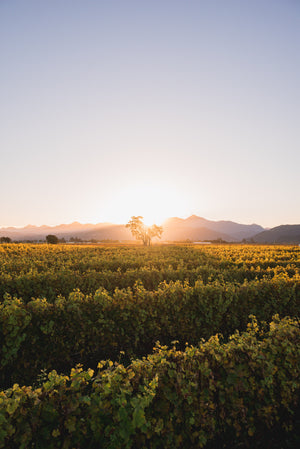Compared to old world wine regions, such as France, Italy, Germany and Spain, New Zealand is a relatively new player in the global winemaking industry.
New Zealand’s first grapes were planted 200 years ago, but it wasn’t until 1979, when Marlborough released its first Sauvignon Blanc, that the world sat up and took notice of New Zealand wine.
Fast forward 40 years and Marlborough’s signature style Sauvignon Blanc is renowned around the world, and Saint Clair’s wine is no exception.
With all that success it would be easy to get complacent, but the New Zealand wine industry is very good at collaborating, researching and innovating to improve technology and techniques in the vineyard and cellar, in our efforts to make every bottle of wine the best it can be.
At Saint Clair not only do we invest in research and development, we encourage all staff to increase their knowledge of all aspects of the wine industry.
Through our Staff Education Programme, we share ideas and expertise with one another, we collaborate with industry peers to learn from each other and encourage staff to experience vintage in wineries abroad to gain insight from passionate winemakers and growers around the world.
Recently, our maintenance engineer Bob Voracek spent four weeks working at the Research Institute of Organic Agriculture (FiBL) in the idyllic Frick Valley in Aargau County, in northern Switzerland.

Hand Harvest in Switzerland
Funded by the Swiss Government and private enterprise, FiBL is one of the world’s leading research and information centres for organic agriculture.
Bob worked with the viticulture and winemaking research department, under the leadership of Swiss winemaker Andreas Tuchschmid, hand picking grapes during harvest and processing them in the cellar.
Bob says 22 varieties of grapes were planted over 4.3 hectares, enabling scientists to run many different trials simultaneously.
“Because it is a non-profit organisation, the focus wasn’t on making money, but on collecting data and information that they can use for the next vintage,” Bob says.
“It was a completely different experience to working here, they ran a lot of trials and microvinification – experimental batches of wine where the wine is fermented in small, specialized vats – to see how the various treatments in the vineyard or cellar affected wine quality.”
After the trials, the wine was bottled and sold locally.
Bob learned a great deal about alternative viticultural and winemaking methods during his experience and has developed a greater appreciation for the impact that bio-diversity and soil quality has on wine quality.
“They are doing some great work there, I was very lucky to learn from some of the world’s leading minds in this field, it was very inspiring.”


